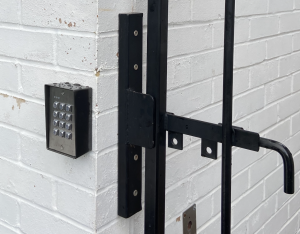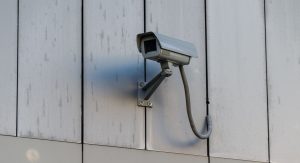The landscape of home security has always been dynamic, undergoing periodic changes influenced by technological advancements.
The days when a simple lock and key were sufficient are gone. we now live in an era dominated by digital technology where CCTV cameras, burglar alarms, and access control systems are commonplace.
With the rise of Artificial Intelligence (AI), home security is on the brink of another transformation.
This blog aims to dissect how AI is reshaping the realm of home security, focusing primarily on CCTV, burglar alarms, and access control systems.
The Evolution of Home Security Technology
Before the digital age, home security was rudimentary, often limited to physical barriers like locks, bars, and manual alarms.
Dogs and neighbourhood watches were considered the gold standard for security.
However, the advent of digital technology brought about more sophisticated solutions such as digital cameras, motion sensors, and automated alarms.
These advancements provided more reliability and efficiency, yet they are poised for disruption as AI technologies begin to integrate into the sector.
AI in CCTV Systems
The introduction of AI in CCTV systems has made it possible to conduct enhanced image and video analysis. For instance, facial recognition technology can identify individuals, while object tracking can follow the movement of cars or other items within the camera’s field of view.
Furthermore, AI can detect anomalies, such as unauthorised persons or unusual activities, sending alerts for real-time monitoring.
In addition to enhanced video analysis, active monitoring is another feather in the cap of AI-enabled CCTV systems. These systems can send real-time alerts, and their self-updating algorithms constantly improve accuracy, making them highly reliable.
AI in Burglar Alarms
The traditional burglar alarm has seen its fair share of false triggers. With AI, intelligent motion detection distinguishes between pets, humans, and inanimate moving objects, thus reducing the occurrence of false alarms.
Adaptive learning algorithms also ensure that the system evolves to recognise regular activities within the home.
Integrated systems are the next frontier, with AI-powered burglar alarms working seamlessly with other security measures like CCTV to create a comprehensive security setup.
These integrated systems can provide more in-depth data and real-time analysis, taking home security to the next level.
AI in Access Control
Biometric systems are becoming increasingly popular in access control, with AI-powered facial recognition and fingerprint analysis adding extra layers of security.
Behavioural biometrics, which recognise an individual’s unique physical interaction with a device, are also on the rise.
Apart from biometric systems, AI algorithms in smart locks can detect suspicious activity and alert homeowners.
The advent of temporary digital keys controlled via smartphone apps offers a flexible, yet secure, method for granting access to authorised individuals.
Additional Areas Impacted by AI
Beyond these primary areas, AI is making strides in other realms as well. Voice recognition systems, for instance, can integrate with smart home setups, allowing homeowners to set security parameters using voice commands.
Another important area is emergency response.
AI can enable faster and more accurate alerts to law enforcement agencies by analysing real-time data, making it easier to catch criminals or prevent criminal activities.
Ethical Considerations
While AI brings a slew of advantages to home security, it also poses ethical dilemmas. One major concern is data privacy, as an enormous amount of personal data is collected and analysed.
Ensuring this data is securely stored and not misused is paramount.
Furthermore, the potential for bias in AI algorithms, whether racial, gender-based or socio-economic, poses its own set of challenges.
It’s crucial to strike a balance between leveraging AI for enhanced security and preserving individual privacy and civil liberties.
Conclusion
The integration of Artificial Intelligence into home security offers transformative possibilities, from enhanced video surveillance to smarter burglar alarms and highly secure access control systems.
While the technology promises to revolutionise the way we think about and approach home security, it is important to tread carefully, considering the ethical implications of such advancements.
As we stand on the cusp of a new era in home security, it remains to be seen whether AI will be a force for good or introduce new complications into an already complex landscape.








